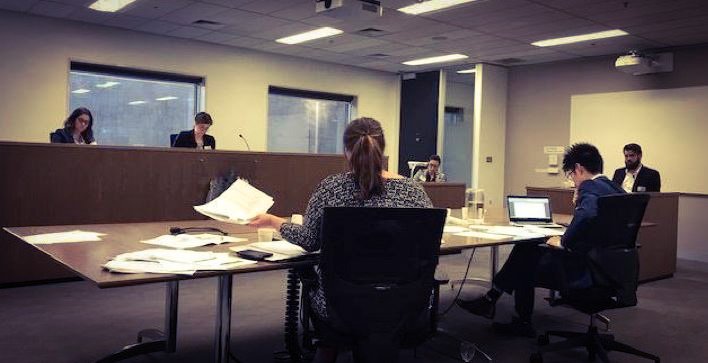Reporting Financial Discrimination
What is Discrimination?
Direct discrimination occurs if a person treats another person unfavourably because of a protected attribute. Examples of protected attributes include gender, age, marital status, disability, race or sexual orientation. Anti-discrimination legislation makes it illegal to discriminate against individuals on such grounds.
Discrimination may occur in many environments – within schools, universities, government agencies, workplaces, religious institutions and real estate agencies.
What is Financial Discrimination?
Financial discrimination occurs when lawfully operating businesses or individuals are refused insurance or financial services by banks, insurance companies, or other financial service providers. Financial discrimination against sex workers or sex industry businesses can occur because of their occupation/industry. In Victoria, discrimination based on ‘occupation, trade or calling’ is lawful, meaning that businesses can legally discriminate against a sex worker or sex industry business on the grounds of occupation.
Sex Work Law Reform Victoria is lobbying to change this.
On 28 July 2022, Sex Work Law Reform Victoria delivered a speech alongside porn performer Christine McQueen about financial discrimination against sex workers. The event was hosted by Humanists Victoria.
Watch the event on Youtube.
Discrimination Laws Nationwide
Laws concerning discrimination are state-based laws as opposed to federal or commonwealth laws, which vary across Australia’s eight states and territories. At present ‘profession, trade, occupation or calling’ is a protected attribute in the Australian Capital Territory and Victoria. ‘Sexual services’ is a protected attribute in the Northern Territory.
Discrimination – What Does the Law Say Across Australia?
Discrimination law is largely state-based. Each state and territory in Australia has its own anti-discrimination laws, which protect individuals from discrimination based on protected attributes or ‘grounds of discrimination’.
Currently there are three protected attributes in some states and territories in Australia in place providing varying degrees of protection to sex industry workers.
Three states identify ‘lawful sexual activity’ as a protected attribute. While this may appear to protect sex workers from discrimination, these states (VIC, QLD and TAS) also prohibit most forms of sex work, therefore only the minority of sex workers who work lawfully might conceivably be protected from discrimination. However, when it comes to unlawful sex work, the sexual activity per se is not illegal. Rather, the activities associated with sex work – advertising, soliciting, living off the earnings, brothel keeping – are illegal. Licensing offences also fall into this category.
Whilst the protection of sex workers is our priority, it is also important to consider other workers within the industry who do not engage in sexual activity in the course of their work, such as escort agency drivers, cleaners, and sex industry owners and managers. ‘Lawful sexual activity’ is not a relevant protected attribute for these workers and is therefore unlikely to afford them any protection from discrimination.
Only Victoria and the Australian Capital Territory (ACT) provide protection based on ‘profession, trade, occupation or calling’. This is possibly the only protected attribute which fully protects all sex industry workers in Victoria and the ACT from discrimination. The Northern Territory provides protection based on ‘sexual services’.
The table below outlines the relevant protected attributes in each state and territory.
How Do the States and Territories Measure Up When it Comes to Anti-Discrimination Protections?
| State/Territory | Relevant Protected Attribute | Legislation | Statutory Section |
| Victoria | profession, trade, occupation or calling | Equal Opportunity Act 2010 (Vic)3 4
| 6(la) 6(g) |
| Victoria | Equal Opportunity Act 2010 (Vic)3 4 | 6(q) | |
| New South Wales | – | Anti-Discrimination Act 1977 (NSW) | – |
| Queensland | lawful sexual activity | Anti-Discrimination Act 1991 (QLD) | 7(l) |
| Western Australia | – | Equal Opportunity Act 1984 (WA) | – |
| South Australia | – | Equal Opportunity Act 1984 (SA) | – |
| Northern Territory | irrelevant criminal record employment in sexual services or engaging in sexual services, including past employment in sexual services or engagement in sexual services; | Anti-Discrimination Act 1996 (NT) | 19(1)(q) 19(1)(ec) |
| Tasmania | Anti-Discrimination Act 1998 (Tas) Anti-Discrimination Act 1998 (Tas) | 16(d) 16(q) | |
| Australian Capital Territory | Discrimination Act 1991 (ACT) | 7(q) | |
| Australian Capital Territory | Discrimination Act 1991 (ACT) | 7(l) |
- Persons engaging in lawful forms of sex work in Victoria are protected against discrimination under the Act
Hilton, K., Submission to the Review into the Decriminalisation of Sex Work – Jul 20 (20 July, 2020) Victorian Equal Opportunity and Human Rights Commission at p3
<https://www.humanrights.vic.gov.au/policy-submissions/submission-to-the-review-into-the-decriminalisation-of-sex-work-jul-20/>
- People working alongside lawfully operating sex workers may be protected by this attribute. A workplace association may be classified as a ‘personal association’. This means sex industry drivers, receptionists, website developers and other third parties may be protected by this attribute.
- The protected attribute “Employment activity” under section 6(c) of the Equal Opportunity Act 2010 (Vic) is not applicable as it only applies to an employee/employer relationship. Sex workers hired to work in brothels or escort agencies are not classified as employees, instead they are classified as private contractors.
- The protected attribute “Industrial activity” under section 6(f) of the Equal Opportunity Act 2010 (Vic) is not applicable as it only applies to union membership. In Victoria there is no trade union for sex workers, and all sex workers are classified as private contractors, not employees. There are a number of support organisations for sex workers in Victoria, but none of these are registered with Fair Work Australia as an organisation classified as a trade union.
Key
red – no protected attribute relevant to the sex industry
orange – a protected attribute, possibly of relevance to the sex industry
green – a protected attribute likely to protect sex industry workers from discrimination
NB: If you are working in the sex industry, you can report financial discrimination (to ASBFEO), even if you live in a state or territory which does not protect you under anti-discrimination laws.
How to Report Financial Discrimination
The Australian Small Business and Family Enterprise Ombudsman (ASBFEO) is a national organisation which, amongst other things, supports small businesses and sole traders with issues they face accessing services and negotiating with service providers. Individual sex workers are considered to be sole traders.
In 2019, the ASBFEO released a statement regarding financial discrimination against sex industry businesses and sex workers.
The ASBFEO will help all sex workers and sex industry businesses in cases of financial discrimination. Reports of discrimination will help them build an evidence base revealing the extent of the problem. Here’s what you can do if a bank refuses you service because you’re a sex worker or a small business in the adult industry:
How to Report Financial Discrimination
Step 1
Ask for a formal internal review and a response in writing from the bank.
Step 2
Make a complaint to the bank’s designated complaints department. As part of this process, you might want to refer to the ASBFEO’s statement.
Step 3
Notify the Australian Small Business and Family Enterprise Ombudsman (ASBFEO) in writing, providing them with the bank’s decision and their reasons. Email info@asbfeo.gov.au or lodge a dispute form on their website here.
Sex workers and adult industry small businesses in all Australian states and territories can report instances of financial discrimination to the ASBFEO.
Financial discrimination can also be reported to these state Small Business Commissioners (NSW, Victoria, South Australia or Western Australia).
NSW – https://www.smallbusiness.nsw.gov.au/
Victoria – https://www.vsbc.vic.gov.au/
SA – https://www.sasbc.sa.gov.au/
WA – https://www.smallbusiness.wa.gov.au/
Sex Work Law Reform Victoria seeks to reform Victoria’s anti-discrimination law to protect all sex industry workers by including ‘profession, trade, occupation or calling’ as a protected attribute. See our “What We Want” page for more.
People claim their legal rights under anti-discrimination law at the Victorian Civil and Administrative Tribunal (VCAT), pictured below. Disputes are heard under the Equal Opportunity List.

© Sex Work Law Reform Victoria 2020
© Sex Work Law Reform Victoria 2022
Last updated: 13 December 2022

